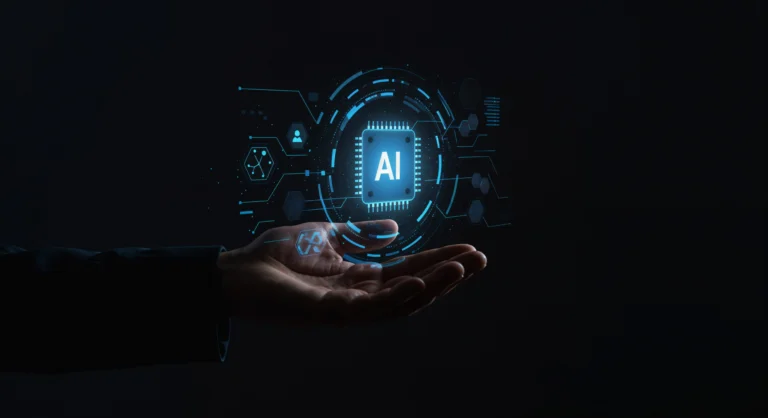
AI in Marketing: Changing the Game, Not Replacing the Player -Soji Leslie (Freelance Digital Marketer in Kochi)
AI in Marketing: Changing the Game, Not Replacing the Player
The marketing world has always been about one thing—understanding people. Their needs, their behavior, and how to connect with them in meaningful ways. Over the years, the tools have changed—from print ads to social media—but the mission has remained the same.
Now, artificial intelligence is stepping into the spotlight. But let’s get one thing clear: AI isn’t here to replace marketers. It’s here to enhance how we work, sharpen how we strategize, and personalize how we connect with audiences.
In this blog, let’s unpack how AI is reshaping marketing—not in some sci-fi, buzzword-filled way, but in real, practical terms you can relate to.
What AI Really Means in a Marketing Context
We’re not talking about robots in suits or voice assistants planning campaigns. In the marketing world, AI means systems and tools that learn from data and use that learning to make decisions, predictions, or suggestions.
It shows up in ways you might already be using:
- Email tools tells you the best time to connect with customer
- Chatbots that answer FAQs on your site
- Recommendation engines that suggest products
- Tools that write first drafts of ad copy or headlines
The power of AI lies in its ability to process massive amounts of data quickly and uncover insights that humans might miss—or take weeks to figure out.
- Smarter Customer Targeting
Remember the old spray-and-pray method of advertising? You’d run ads for weeks, hoping they landed in front of the right people. AI has changed all that.
Today, machine learning algorithms can analyze user behavior, past purchases, search history, and engagement patterns to build detailed customer profiles. With that data, brands can serve highly targeted content or offers that actually speak to what someone wants or needs.
It’s not just demographics anymore—it’s behaviors, interests, and intent. That’s a game-changer.
- Personalized Experiences at Scale
Personalization has become more than just “Hi, [First Name]” in an email.
Thanks to AI, brands can now create dynamic website experiences, product recommendations, and email journeys based on individual user behavior in real time.
For example, an online clothing store might use AI to show different homepage banners depending on whether a visitor has been browsing women’s shoes or men’s jackets. That kind of relevance boosts engagement—and conversions.
The magic? It feels personal without requiring someone to manually design thousands of versions of every campaign.
- Predictive Analytics: Knowing Before They Do
AI doesn’t just look at what’s happened—it can predict what’s likely to happen next.
With predictive analytics, marketers can forecast which leads are most likely to convert, when a customer might churn, or what products might trend next month. This gives brands the edge to act early—before the competition, and before the customer even realizes what they want.
For example, subscription services can identify users who are likely to cancel and trigger re-engagement campaigns before they walk away.
- Streamlining Content Creation (Without Losing the Human Touch)
AI can now create blogs, ad headlines, and even social media contents. While it’s tempting to hand off all the content creation to machines, that’s where many go wrong.
Great marketing still needs a human voice.
Use AI to speed up the process, brainstorm ideas, or structure campaigns—but always refine it with your tone, brand personality, and real emotion. AI gets the ball rolling. You finish the play.
It’s still your assistant, not a replacement.
- AI-Powered Chatbots: From Annoying to Actually Helpful
Let’s be honest—most early chatbots were painful. They misunderstood questions, gave generic answers, and felt robotic.
Today’s AI-driven bots are smarter. They understand humans better now.
This makes them a key part of 24/7 customer support, lead qualification, and even product guidance. Done right, they don’t frustrate users—they guide them smoothly through their journey.
- Real-Time Decision Making
Campaign performance used to be analyzed after the fact. You’d wait days or weeks to gather data and adjust.
With AI, everything happens in real-time. Ad platforms use algorithms to shift budgets toward higher-performing creatives. Email tools automatically test subject lines and pick the winning one mid-send. Social media platforms boost posts that gain traction quickly.
This level of agility allows marketers to stay relevant and optimize while the campaign is still live, not after it’s over.
- Voice to Visual Search: AI moving to the next level
We’ve moved beyond typing. People are now speaking their queries or snapping photos to find what they want.
AI enables platforms to interpret voice commands and image inputs with increasing accuracy. This shifts how brands approach SEO and content creation.
If your product images aren’t optimized for visual search, or if your site doesn’t appear in voice-friendly search results, you’re missing out on new types of organic traffic.
- Ethical Marketing: AI With a Conscience
With great power comes great responsibility.
As marketers adopt AI, it’s crucial to think about how data is collected, stored, and used. Transparency, consent, and privacy can’t be afterthoughts.
The best marketers will be the ones who not only leverage AI effectively but also earn the trust of their audience by using it responsibly.
Final Thoughts: Let AI Be a Tool, Not a Trend
AI is not magic, a smart marketer who knows how to use it can do wonders. It helps you move faster, think sharper, and deliver more relevant experiences. But it won’t replace your strategy, your creativity, or your understanding of your audience.
At the end of all, you still need people, their emotions, decisions, and stories.
AI simply helps us reach them better.
So, whether you’re building campaigns, refining customer journeys, or writing content—let AI support your craft, not replace it.
Soji Leslie – Freelance digital marketer in kochi